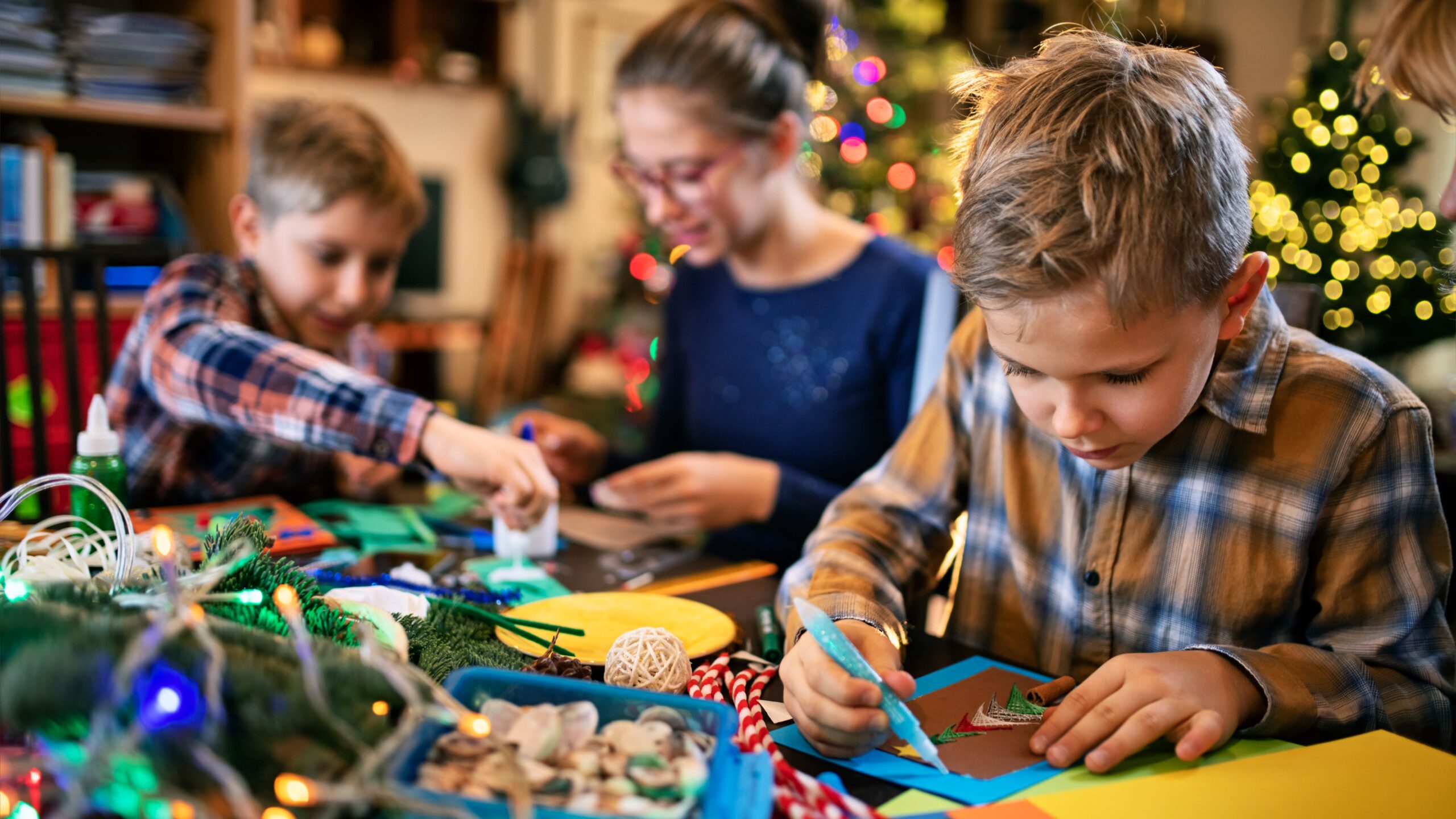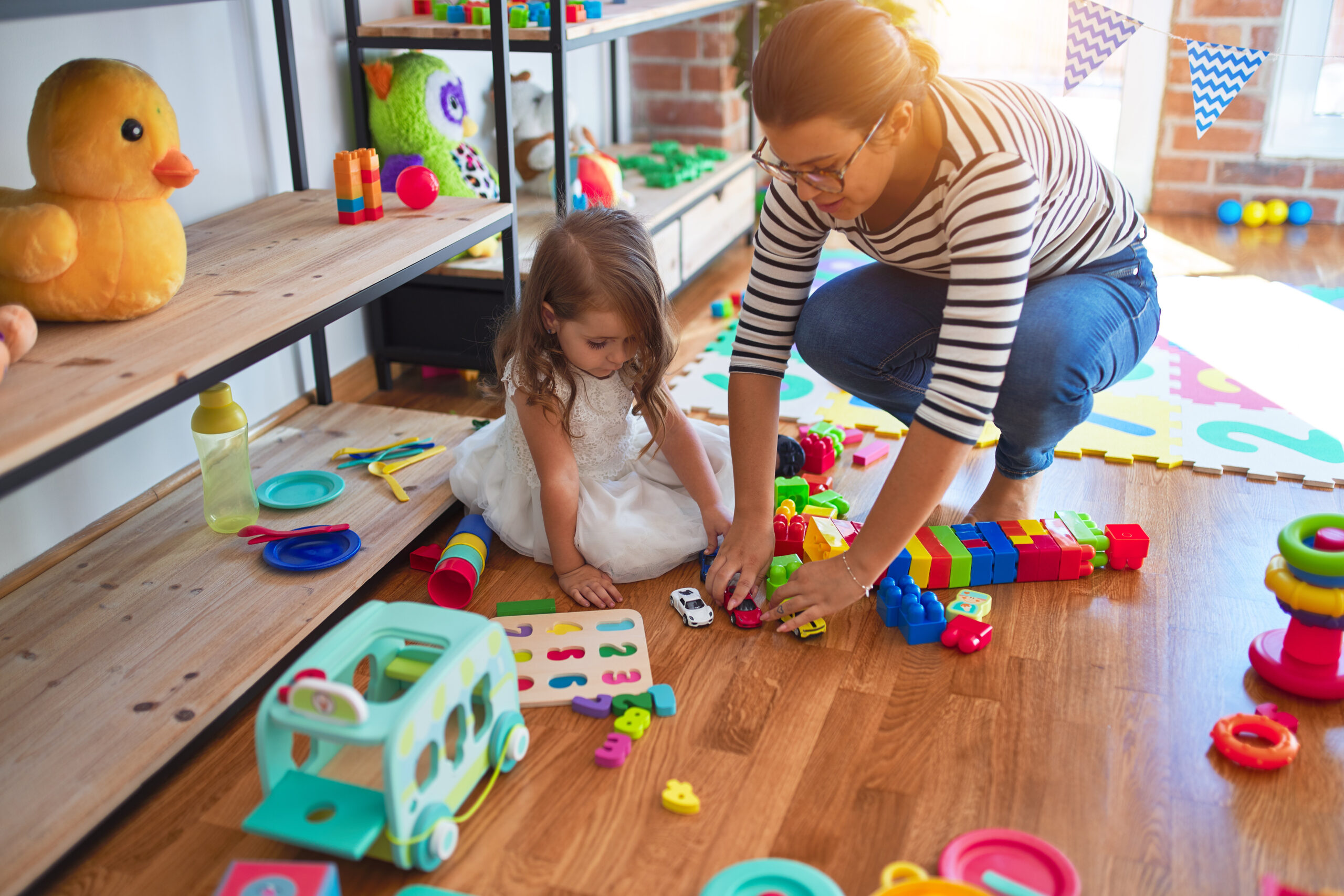
If silent nights are hard to come by in your house this holiday season, it might be time to co-regulate the emotions of you and your children, according to Sarah R. Moore, author of Peaceful Discipline: Story Teaching, Brain Science, and Better Behavior and founder of Dandelion Seeds Positive Parenting. As a master trainer in conscious parenting, armchair neuroscientist, and mother, Moore is in the trenches of the gentle parenting method.
“Gentle parenting goes by a lot of names, but the easiest way to describe it is parenting that does no harm to the child or to the relationship. It is not the same as permissive parenting — permissiveness actually is linked with negative outcomes, yet people often confuse the two,” explains Moore. “In gentle parenting, we prioritize relationships within the context of healthy and developmentally appropriate boundaries. People who feel emotionally connected naturally want to do well for each other. It actually makes parenting easier, less labor-intensive, and more joyful.”

By shifting how they speak to their children, parents can see more peaceful outcomes. If you’re knee deep in wrapping gifts and baking cookies, and your kids have left a mess of toys around, you may feel frustrated and tell them to clean up their mess. But we all know that kids don’t necessarily like being told what to do, so how can parents keep their house running calm and bright in the midst of the hustle and bustle of the season?

Moore shares a personal story, telling LittleThings, “Recently, my daughter had a mess on the floor behind her dollhouse. She was happy with her setup, but I grew concerned that it would become a breeding ground for who-knows-what. Dictator Mommy (me) showed up and told her plainly to clean it up. That plan didn’t fly.”
Rather than yell, Moore leaned on her gentle parenting method. “Peaceful Mommy (also me) got the hint and decided to overthrow Dictator Mommy. Using one of her dolls (Queen Mouse) as my helper, I humbly requested of the queen that my daughter and I be allowed to tidy up her courtyard. ‘Speaking’ through my daughter, Queen Mouse responded, ‘Yes, you may, but only after lunch and after we get my valuables out of the way.’”

Moore explains, “This was a reasonable trade for me. I could wait until after lunch, and since my daughter, through her stuffed animal, suggested the timing and part of the process, she had already ‘bought in’ when it was time to follow through. Dictator Mommy would’ve made a bigger emotional mess of that small physical mess, and probably would’ve ended up with a sad little girl. Instead, with a co-created boundary and follow-through, we kept our afternoon peaceful and positive.”
She notes that some people are more sensitive than others — she’s one of them — and parents need to keep that in mind. “The world is harsh, but ‘toughening up’ our kids only contributes to the toughness of the world. Instead, knowing that sensitive children truly do feel things differently than others do, we can raise sensitive kids who are resilient and who also authentically embrace the compassion, empathy, and deep connection that the world so desperately needs. Lean into their sensitivity, and their unique traits will be a blessing to all the lives they’ll touch.”

There are times, of course, when parents are completely stressed out (holiday gifts are putting you in debt, you’re hosting dinner and the house is a mess, etc.), and you can’t help but yell. “Move that energy,” suggests Moore. “The point isn’t to stuff down our anger — that’s like trying to put a cork in a volcano and expecting it not to explode.”

When you feel tempted to yell, Moore suggests that parents try large muscle movements, like pushing hard against an immobile object (a countertop, a wall, pushing downward on a chair while seated), stretch your body (“It lengthens the muscles to immediately relieve tension”), and yell, but not at your child.
"If you have a sensitive child, refrain from doing this one as they may perceive it as scary," she says. "If you’re able, though, rather than yelling something hurtful, try yelling something like, ‘This is so hard and I need a few minutes to regroup before we talk about this peacefully!’ In doing these activities, we validate our nervous system’s genuine need to release the energy, while also preserving the relationship."

One of the best ways to regulate the nervous system is to co-regulate together and remember Moore’s favorite mantra: “We are stronger than our problems.”
Moore says that “co-regulating means we find a way to be peaceful together and find a mutual space of calm.” She notes that some effective and research-backed ways to co-regulate include stepping outside for some fresh air when we’re upset (“time in nature almost immediately lowers our heart rate and blood pressure, and doing this alongside our child helps us see the big picture rather than get caught up in the moment”), getting a cold glass of water together (“cold water helps activate the vagus nerve and can be calming to the nervous system”), and going to snuggle and read a story together on the couch for a few minutes (“gentle physical touch can also be calming”).

It’s important to note that “it doesn’t mean we’re brushing our problem under the rug; it just means we’re prioritizing finding peace together before we tackle whatever challenge we need to address.” Moore says, “Once we’ve co-regulated, we’ll approach the problem from a place of connection rather than animosity.”
Moore shares five tips for keeping the peace with your kids this holiday season:

- Follow normal routines for your child as much as possible: their snack and mealtimes, bedtime, etc. These are sacred (with some flexibility for special events if that appeals to you).
- Follow your normal routines for yourself as much as possible: your snack and mealtimes, bedtime, etc. (We need these, too! Adults often overextend themselves and then pay the price – we don’t magically need less sleep than usual during the holidays.)
- Be aware of your child’s limits for sensory input. The holidays are bright and loud.
- Don’t assume your child will want to do “all the fun activities” — check in and trust them. If they say they don’t want to do an activity, that’s OK. There’s always next year.
- Schedule extra connecting downtime with your child every single day. Make sure they feel that they are the priority in your holiday season.
Another helpful tip for parents is to learn how to make saying "no" a positive experience. “Validate the child’s feelings and frame your ‘no’ as a ‘yes’ whenever you can,” says Moore. “For example, ‘I see how much you want the giant chocolate Santa. Chocolate really is yummy, isn’t it? We’re not going to buy this one because it’s time to go home for dinner, but when we get home, let’s pick a day on the calendar when we’ll plan to have a special treat.’ It helps tremendously for the child to understand why you’re making the decision, and what they can look forward to as an alternative.”

Parents can also take steps to set up for success. Moore says, “Resist the temptation to overschedule. If anything, to the extent that sensory input tends to increase over the holidays, you can proportionately decrease the amount of exposure your family has to it. Simplicity and consistent, predictable downtime are key to keeping emotions regulated so that the holiday season actually feels peaceful.”







